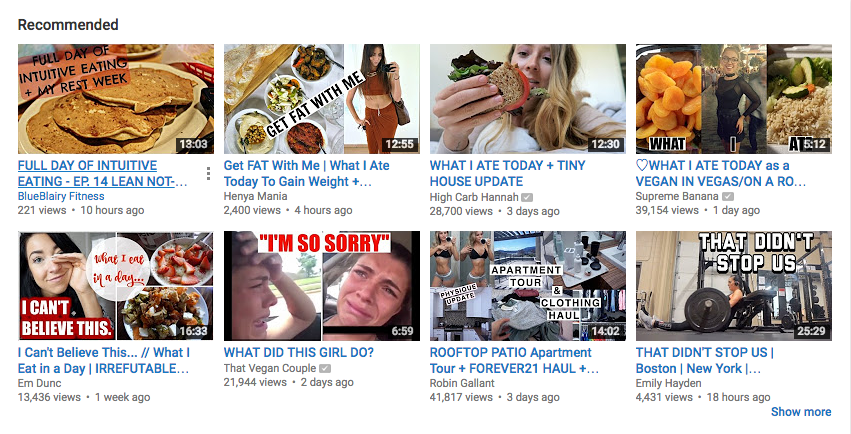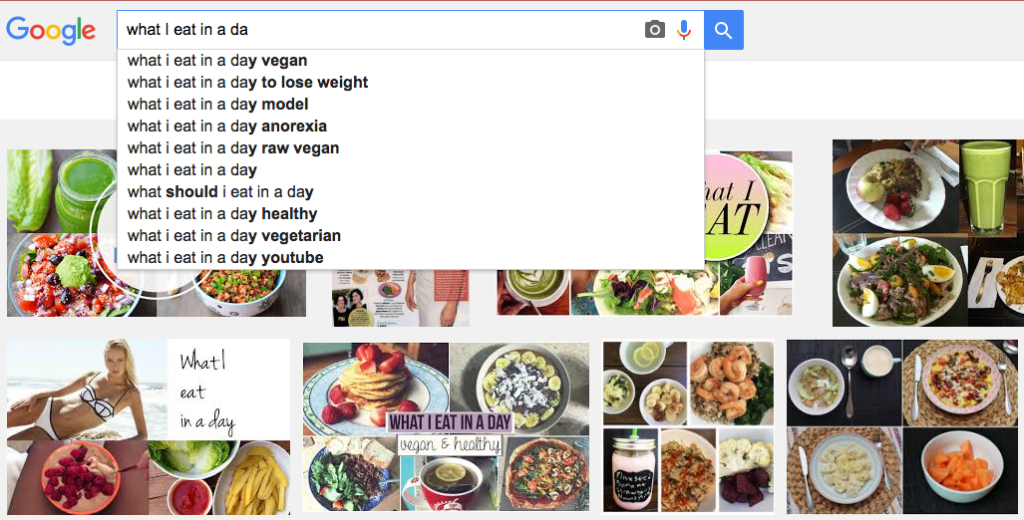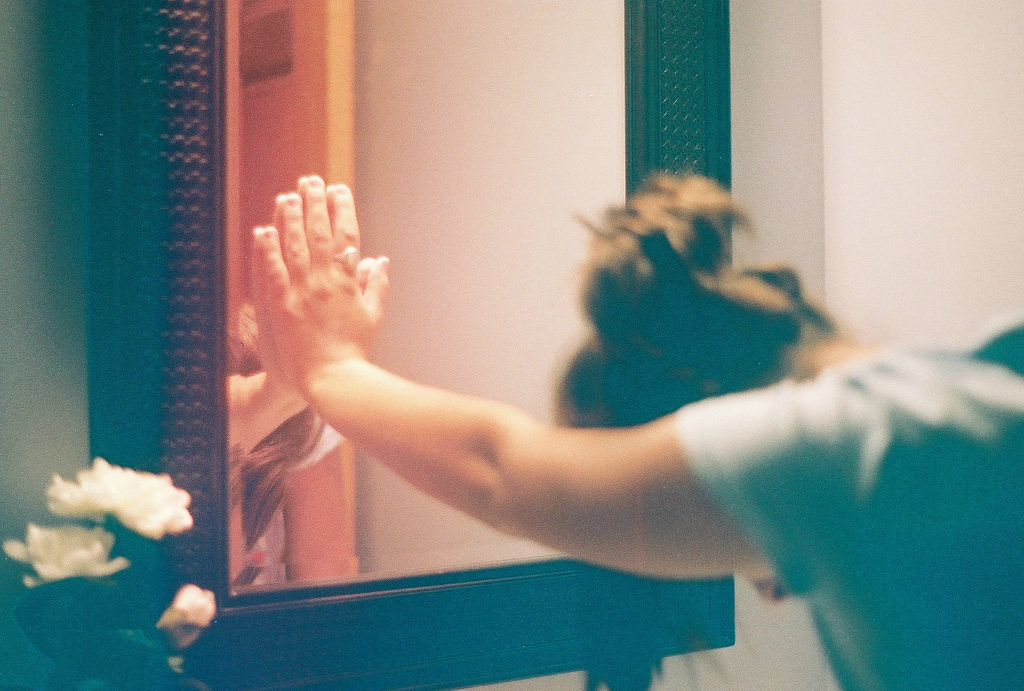When I open YouTube on any given day, I see five recommended videos with similar titles like “What I Eat in a Day,” “What I Ate Today” and “Full Day of Eating.”
For those of you who don’t know, “What I Eat in a Day” videos are simply a person talking about and/or showing pictures of what they ate that day.

Photo courtesy of Youtube
YouTube doesn’t just select these videos randomly. The reason why “What I Ate” videos keep coming up in my feed is because I keep watching them. Honestly? They’re addictive.
When I asked my foodie friends whether or not they watch these videos as much as I do, the answer was a consistent yes – and it’s certainly not just me and my friends. These videos are extremely popular, and if people weren’t watching these videos, there wouldn’t be so many out there.

Photo courtesy of Youtube
After thinking for a while about why so many of us enjoy watching these videos and reading these types of articles, I’ve come up with a few plausible theories.
At first, it seems that a big motivator behind watching these videos is entertainment. When I pull up YouTube, I want to watch something that distracts me, gives me some enjoyment, and maybe teaches me something or makes me think.
“What I Ate” videos are just that: pretty pictures of food with pretty people eating it, and maybe a little bit of (mostly meaningless) dialogue.

Photo courtesy of Lisa Lorles on Youtube
There’s nothing wrong with deriving pleasure from delicious food, but the obsession with what other people eat can be detrimental.
In fact, people with histories of disordered eating (or even just people who are overly food-focused) can become unhealthily obsessed with “What I Eat in a Day” videos.
Beyond the obsession with watching these videos, the content can cause significant distress and self-consciousness regarding food, which is especially dangerous for people who already live with a disordered relationship with food and their body.

Photo courtesy of @Emily Mucha on Flickr
When all is said and done, the root of these videos and the subsequent obsessive thoughts about food is a more systemic issue than it is due to the individual. Magazines, online articles, YouTube videos, newspaper articles: they all perpetuate the obsession with food.
Because we’re always tuned in to what other people are eating, we start having thoughts like “Should I be eating that too?” or even, “I need to eat that so I can look like them/live like them/be happy like them.”

GIF courtesy of giphy.com
The problem is that these videos don’t make me more intelligent, happier, or inspire me to fulfill any of my aspirations. All they do is make me feel self-conscious about what I’m eating and give me some degree of entertainment. It’s all fun and games until the thought of food begins to distract you from productive thoughts or other things that are important in your own life.
I certainly don’t take lightly the potential these videos and articles have to lead me towards disordered eating habits. I feel that, for me, it is important to limit how many of these videos I watch. Yes, food gives me joy and food gives me energy – but what I eat isn’t everything.
Remind yourself of this: I live in my body and my mind, which aren’t the same and shouldn’t be fed or treated the same as anyone else’s.
“What I Ate Today” videos are entertaining, but they aren’t worth obsessing over.


